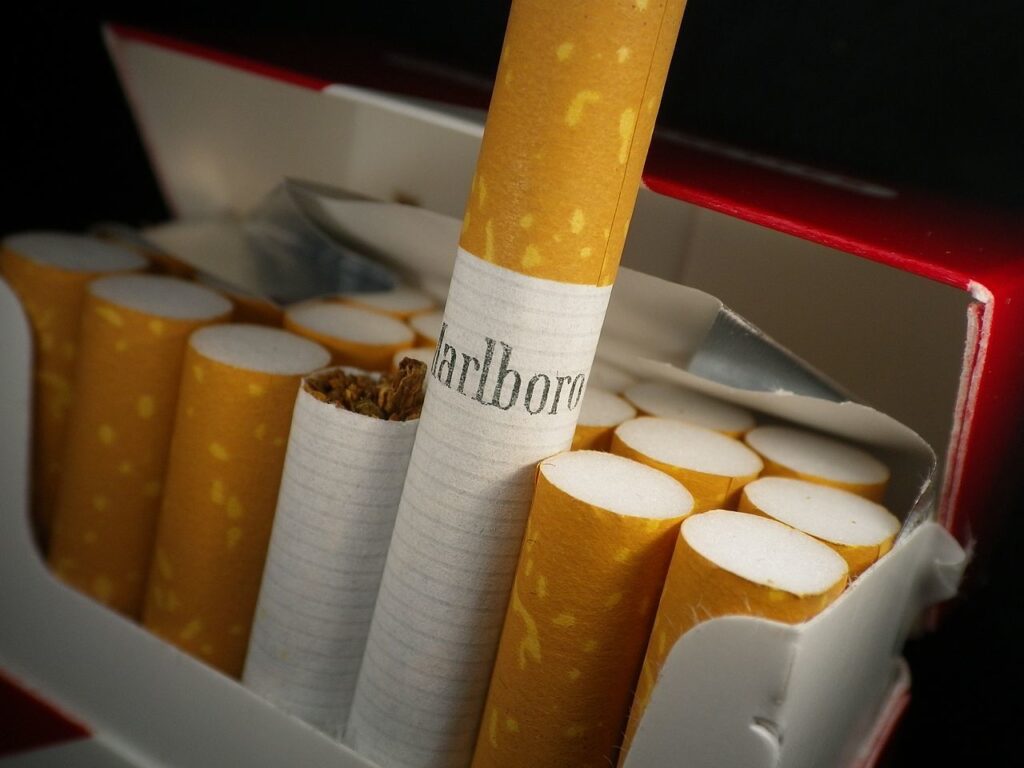City and state officials across the nation often use tax increases on tobacco, alcohol, plastic bags, sugary drinks, and other “sin products” to help fill their budget gaps or fund pet projects. By taxing products that some governments claim have a negative effect on society, officials are able to raid taxpayers’ wallets without having to face the same level of scrutiny that normally goes hand-in-hand with proposals to raise taxes.
No major U.S. city relies on tobacco taxes as heavily as Chicago, where government already levies a tax of $7.17 per pack on cigarettes, the highest in the nation. Since Mayor Rahm Emanuel entered office in 2011, he has imposed a slew of new taxes and restrictions on tobacco products, including clamping down on electronic cigarettes—a product studies have shown have significant public health benefits.
A frequent way politicians such as Emanuel justify these tax increases is by tying them to a proposal for additional education funding, often alongside a slogan, such as “it’s for the kids.” This strategy makes campaigns against sin products difficult for other politicians and parents to oppose.
Emanuel’s new tobacco product tax increase proposal, which would increase taxes on several tobacco products, is another in a long line of attempts to guilt the public into paying higher tax rates, instead of implementing sustainable and responsible spending practices.
Emanuel’s new tobacco tax package would impose a 15-cent tax per pack of little cigars and a 90-cent tax on larger cigars, and it would increase the tax on smokeless tobacco to $1.80 per ounce. The tax on roll-your-own tobacco would also increase to $6.60-per-ounce. Emanuel says the new taxes will allow the city government to start a one-week summer transition program for incoming freshman and a two-week summer school for 8th graders at risk of dropping out. Proponents of the tax say it will raise $6 million annually.
This funding mechanism has two major flaws. First, cash raised using sin taxes almost always fall disproportionately on lower-income earners. According to the Bureau of Labor Statistics, consumer households earning less than $150,000 a year pay 95.8 percent of tobacco expenditures.
Second, history has shown tobacco taxes are an unreliable revenue source used to prop up government spending while relying on a narrow and shrinking tax base, creating greater revenue gaps in the future. According to recent data from the U.S. Census Bureau, state revenue collected from tobacco product sales taxes decreased in 2013 by 0.9 percent to $17 billion. In 2012, tobacco product sales tax revenues decreased by 0.5 percent. The National Taxpayers Union Foundation says tobacco tax collections failed to meet initial revenue targets in 72 out of 101 regions where tax increases were recently implemented.
While the new taxes Emanuel proposes are designated for education, a worthy cause, and reducing smoking rates is a noble goal, tobacco tax increases rarely work as intended and frequently have many negative effects, including driving residents to buy untaxed or lower-taxed tobacco elsewhere, harming retailers and resulting in the creation of black markets.
Chicago Public Schools have already spent millions on making students aware of the importance of the first day of school. These efforts include signs, phone calls, home visits, participation in community festivals, and even school supply bags. Given the struggles schools have faced to get students to attend the first school day of the year, an initiative to get them to attend one or two weeks during the summer seems destined to fail.
The Office of Inspector General for the Chicago Board of Education recently released fraud investigations for the 2014–15 school year, uncovering millions of dollars in no-bid contracts, shakedowns of vendors, and theft of school property and funds. Some school officials were also found to have spent time watching porn at work and to have worked on their own side businesses during school hours.
Making matters even worse, only 24 percent of the complaints were investigated due to a budget shortage. Instead of raising taxes on the public, more efforts should be made to clean up the current systems, a move that would likely save most, if not all, of the monies needed for this proposal.
Chicago should work on getting its fiscal and education houses in order. The city needs to focus on implementing pro-growth tax reforms that put more money back in the hands of Chicagoans and encourage additional private investment, as well as introducing reforms of the education system that would help improve a school system that is failing to graduate one out of every three students.
Tax increases will help fill the city’s coffers with money that will almost certainly be wasted, but it won’t accomplish any of these important goals.
Lennie Jarratt ([email protected]) is project manager for education reform at The Heartland Institute and Matthew Glans ([email protected]) is senior policy analyst for The Heartland Institute.






